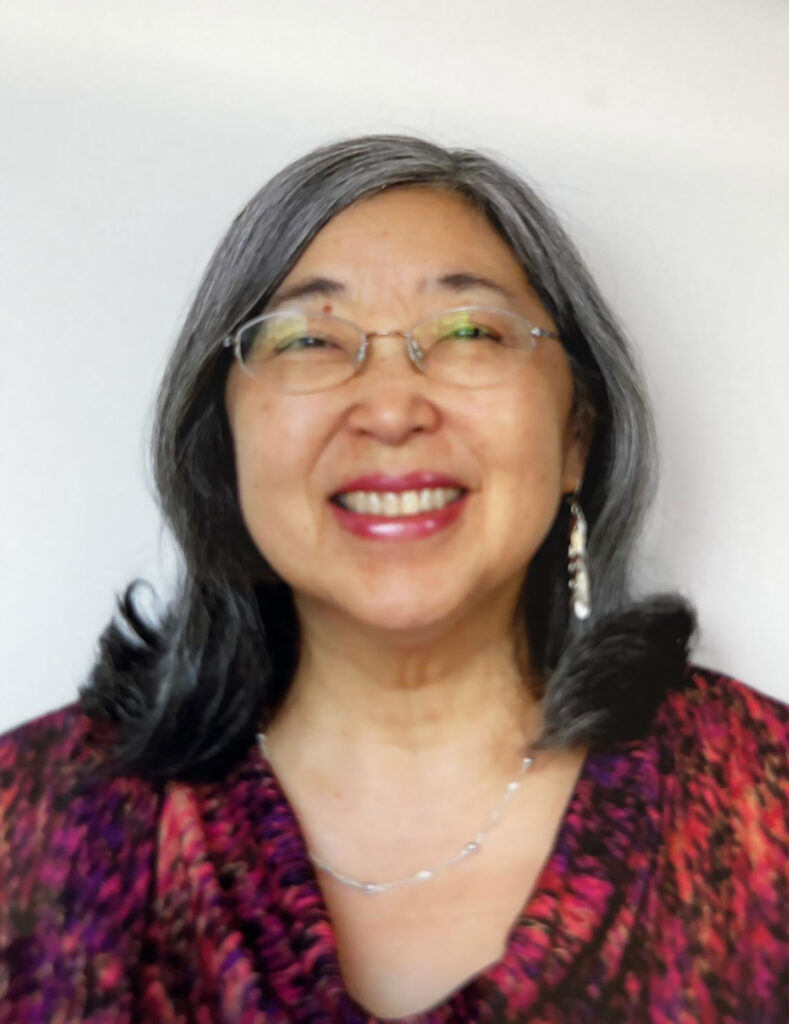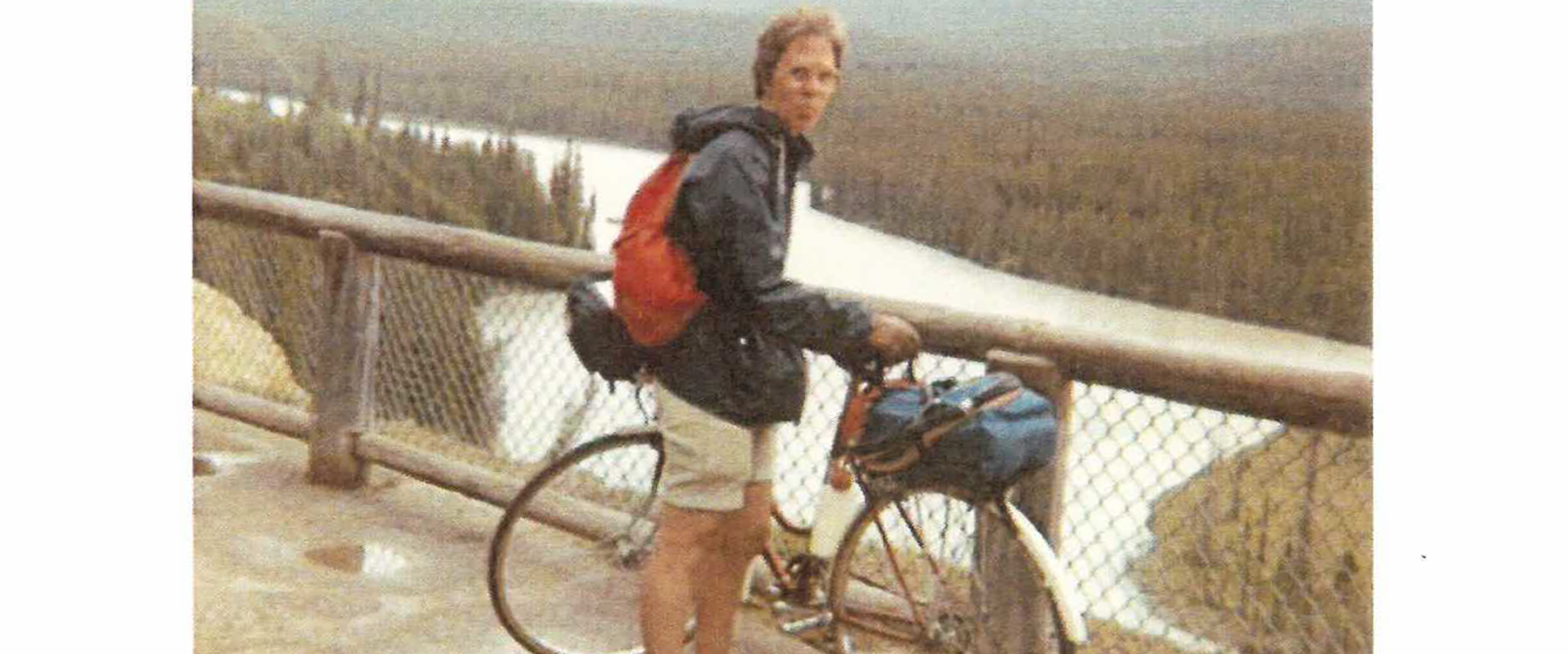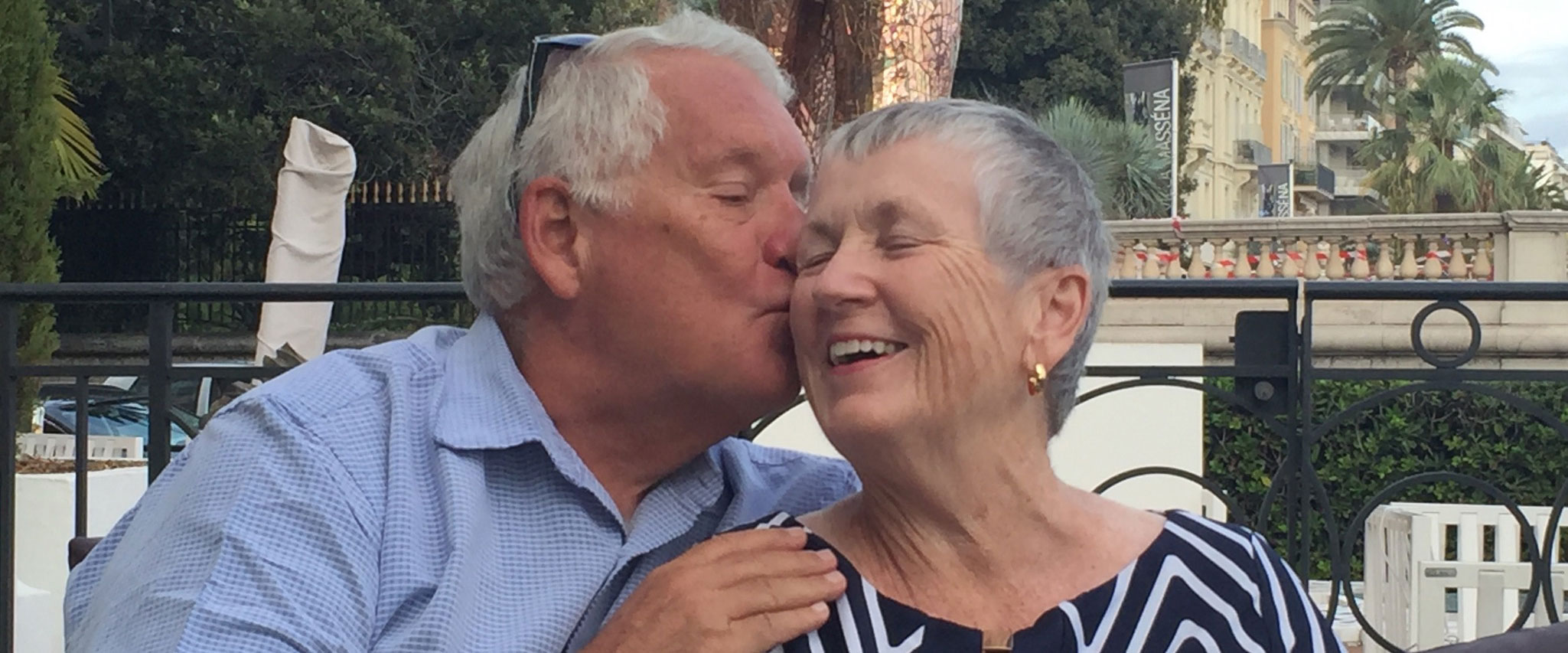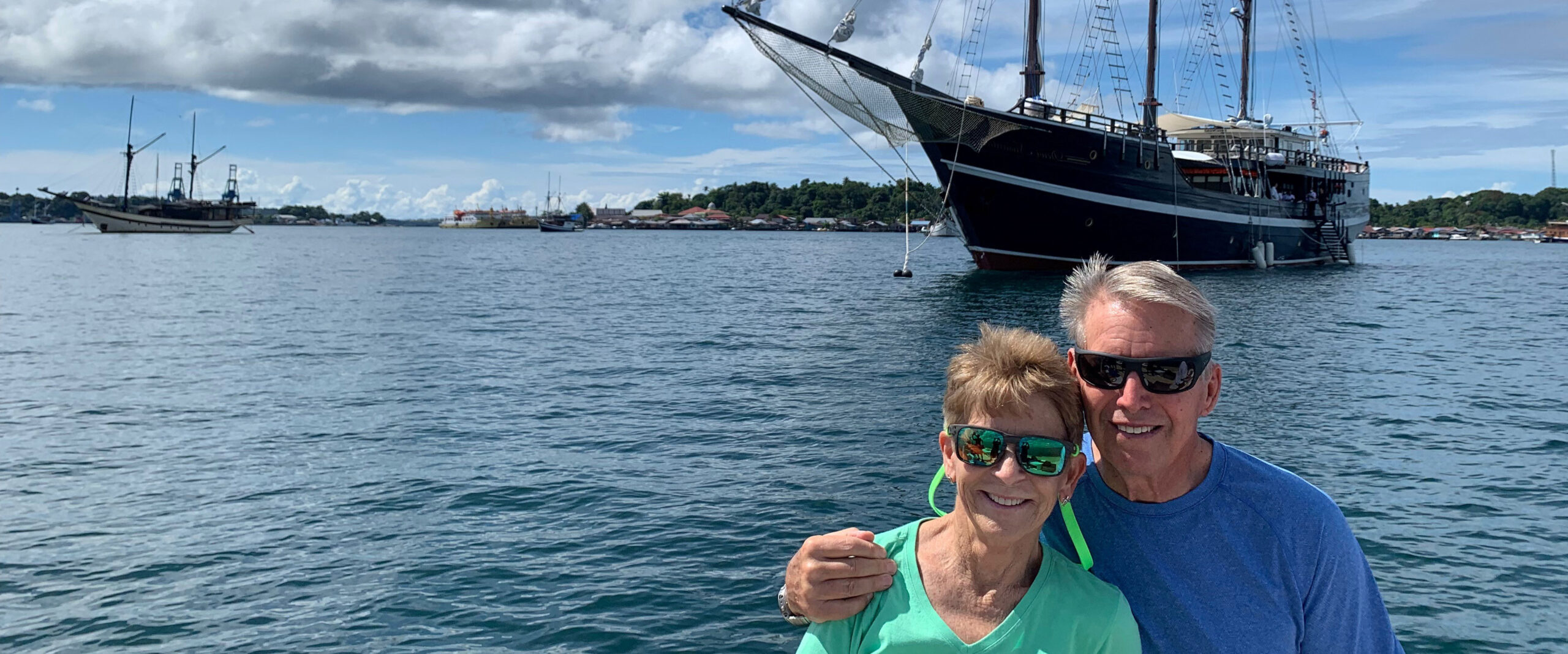By Darby Kendall
After patients at the OHSU Knight Cancer Institute undergo bone marrow transplants, they must have round-the-clock caregivers for three months to provide health monitoring and medical support. Oftentimes, people rely on friends and family to act as caregivers, but for those who don’t readily have that help available, the transplant cannot move forward as planned.
To Patty Rosenberg, a former transplant patient, this sounded like a problem she could help solve.
Rosenberg, a retired software engineer with a penchant for video games, fitness and great food, first came to OHSU in 2019 for cancer treatment. To say that she is remembered fondly by those she knew in the hospital would be an understatement.
“Patty was this really brilliant, super well-traveled, very interesting, very independent person,” said Keren McCord, LCSW, OSW-C, a social worker at the Knight Cancer Institute. “She was a really special person.”
Rosenberg was determined to access care that would allow her to continue to live an active life, and it was decided that a bone marrow transplant was her best option.
Then, the conversation of caretakers came up.
She had survived her husband, Richard Rosenberg, and had no other remaining family. Despite having plenty of close friends, they were all at an age where it would be too difficult to take care of Patty after receiving her transplant. Ultimately, Patty decided she would pay out-of-pocket for professional caregivers, as insurance companies don’t help cover the cost, even when patients are unable to find a caregiver in their immediate circle.

“The reason for the 24-hour caregiver requirement is to make sure that when people are struggling after transplant, and trying to recover and rehab, they have someone there,” said Arpita Gandhi, M.D., M.S., assistant professor at the OHSU School of Medicine. “Hydration is so important after a transplant, as is making sure the medications are given on time. Caregivers also have the job of bringing patients to the clinic two to three times a week, and making sure their mental health is okay. Lastly, one of the most important jobs that they do is monitor for big complications after transplant, which could potentially result in morbidity and/or mortality if not identified promptly.”
Both Gandhi and McCord remember Patty’s surprise at the lack of a safety net for some patients, and her pragmatism toward finding a fix. As Gandhi recalled, “She said to me, ‘Dr. Gandhi, you had told me once that people don’t have money to hire caregivers, and if they don’t have any loved ones, they can’t get a transplant. I want to donate money.’”
Patty’s solution: to establish an endowed fund through her estate to benefit the Knight Cancer Institute. Earnings from the Patricia Rosenburg Endowed Fund for Patient Assistance will help provide supportive care needs for patients undergoing bone marrow transplants and cellular therapies. The Rosenberg Fund is expected to exceed $3 million.
“This generosity, to say at end of her life, ‘I’m going to now take a majority of my estate and make sure other people have this opportunity,’ it blew my mind,” McCord said. “It was so uncomplicated. She was just like, ‘Of course, it’s logical thing to do; I can do that. So, I’ll do it.’”
In 2023, Patty passed away at age 75 due to health complications from the transplant. According to her care team, even in her final moments, she was determined to push her philanthropy through.
“We get to bear witness to people going through progressing illnesses, and in this beautiful way, for a lot of people, their real essence as a human comes through even more,” said Jessica Savara, MSW, LCSW, CADC II, a social worker at the Knight Cancer Institute. “I think that was really true of Patty, because at the end of her life, she became so focused on, ‘I need to get this done; I need to meet with my attorney.’ Everything was around that getting completed.”
When speaking on what this gift will mean for the institute, Susan Hedlund, MSW, LCSW, OSW-C, director of patient and family support services, described Patty’s generosity as transformational. “This grant is a game changer. It allows people who are coming for the potentially life-saving procedure of a bone marrow transplant to not have the lack of a caregiver be an obstacle. It’s expensive to hire round-the-clock care.”
On top of the essential medical assistance provided by caregivers, their relationships with patients are an important part of the recovery process, as they often provide mental health support and general companionship as well. Just as Patty became close with her provider team at OHSU, she also befriended her caregivers. “She really just started treating all her caregivers like family,” Gandhi said. “You could just tell they were always going out to eat together after the appointments. It was really fun to watch Patty interact with them.”
Savara explained that this type of bond often comes out of the caregiver/patient relationship, and Patty’s donation will allow for more of these mutually beneficial connections to blossom.
“We’re talking about folks who have limited support or have nobody in their life who can come alongside them to provide this practical care. Something that’s coming out of this donation is people will form relationships,” Savara said. “They’ll be cared for and hopefully feel compassion and have a deep meaningful bond with somebody else through this process.”
Thanks to Patty’s planned giving, the social work team at the Knight is looking toward the future with possibilities. One goal is to allow for more equity amongst transplant patients.
“We know that cancer disproportionately affects communities of color, and access is a big part of it. How that reflects within the transplant community is no exception,” McCord said. “There is this privilege baked into this process. You have to be able to have a social network who can walk away from a paid job for three months or more. To be able to take this donation and say to folks, ‘You know what, we can figure this out,’ I get emotional thinking about that. This is one piece of providing more equity.”
Savara reflected a similar sentiment in the goal of expanding treatment access, and said she wishes Patty could only see the ways her gift will positively benefit the entire system surrounding bone marrow transplants at OHSU.
“I keep thinking of all the ripple effects. Partners will be able to just be partners to their loved ones, because they’ll have a caregiver. People like us, in our roles, are going to have a little bit less stress. People who wouldn’t otherwise be able to access transplants are going to have access to transplants,” Savara said. “I just want to express my appreciation to Patty and say, thank you for caring about us and loving your community.”




